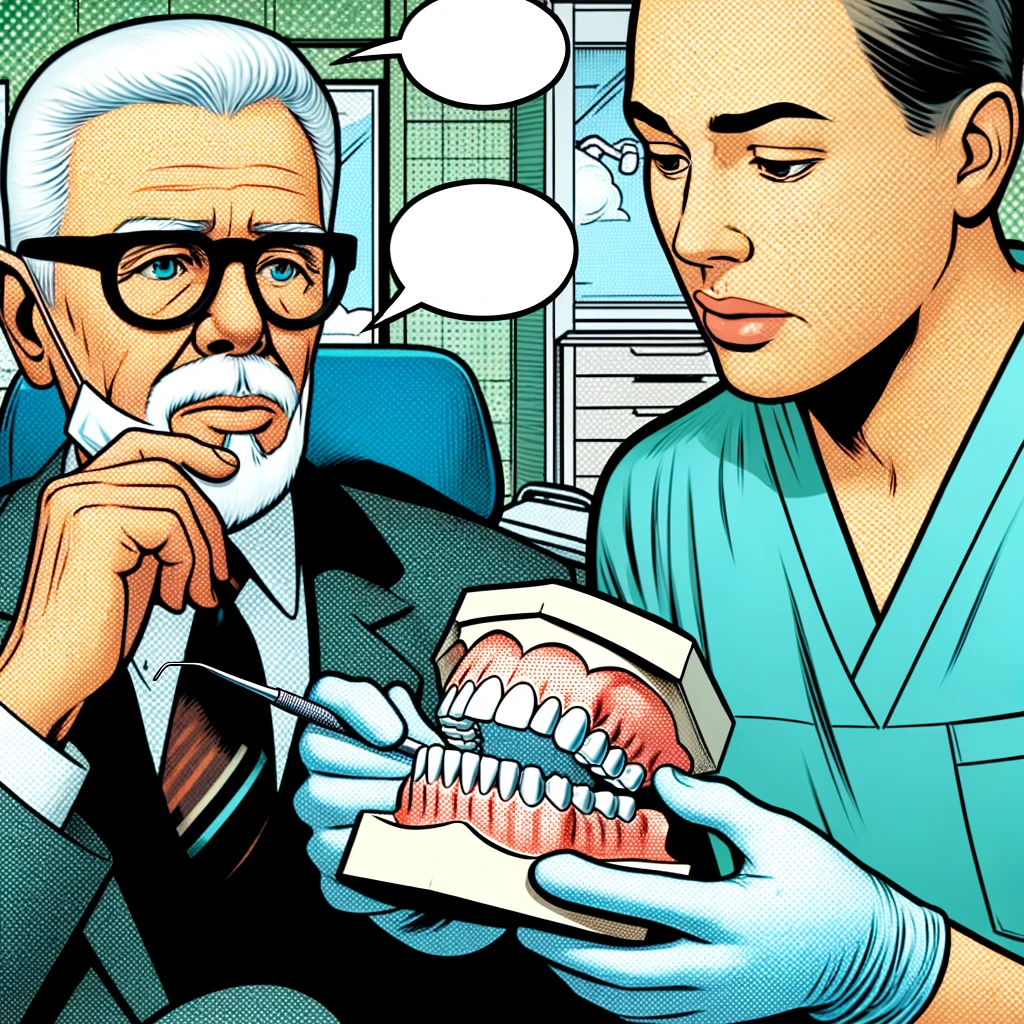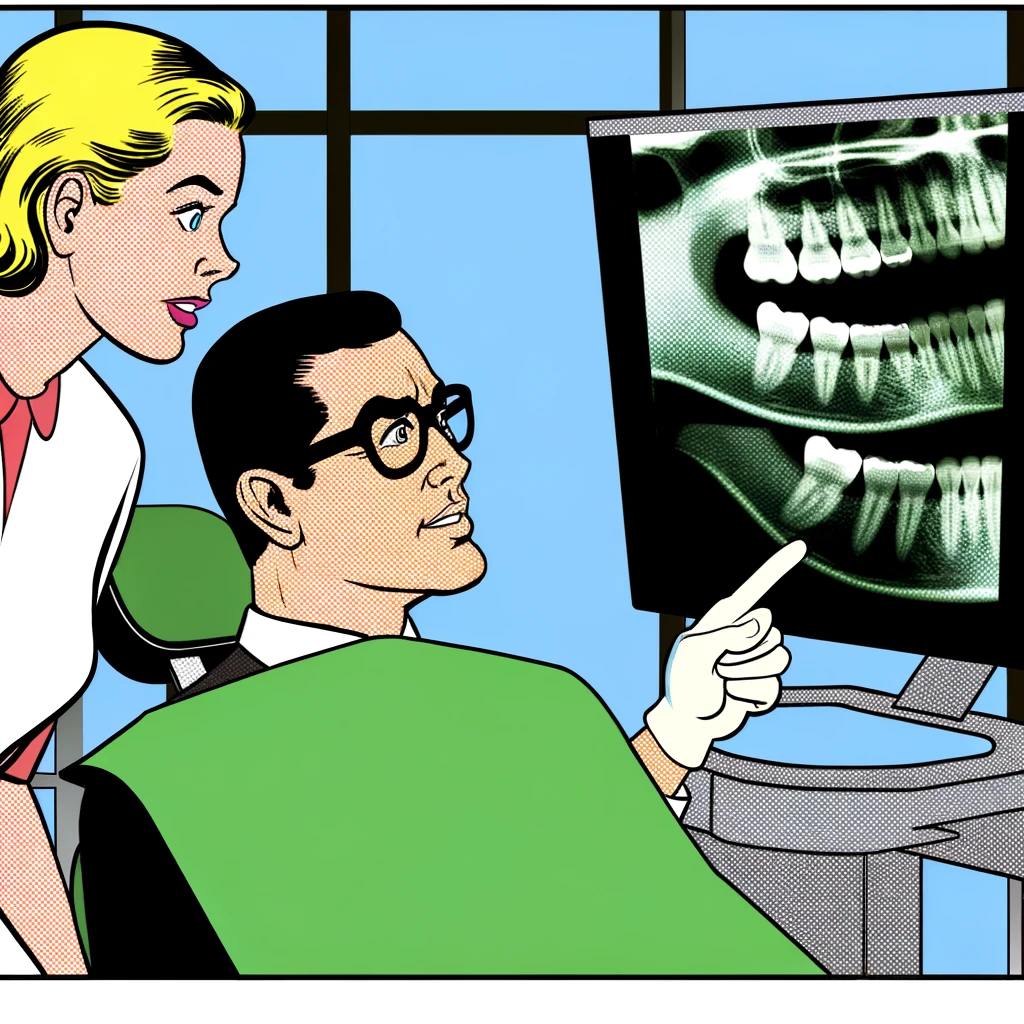Emergency dentistry addresses urgent dental issues that require immediate attention to alleviate pain, prevent further complications, or save a tooth. Understanding how to react in dental emergencies can significantly impact the outcome and ease the path to professional treatment. Here’s a comprehensive guide on what to do when common dental emergencies occur, ensuring you’re prepared to handle unexpected dental issues effectively. For personalized care, consult with a Meridian ID dentist.

Severe Toothache
A severe toothache can indicate various problems, such as infection, decay, or injury. Initially, rinse your mouth with warm water to clean it out. Gently use dental floss to remove any food caught between your teeth. If your mouth is swollen, apply a cold compress to the outside of your mouth or cheek. Avoid applying heat or any painkiller directly against the gums near the aching tooth, as it may burn the gum tissue. If the pain persists, contact your dentist immediately.
Knocked-Out Tooth
If a tooth is knocked out, time is of the essence. Retrieve the tooth by the crown (the part not attached to the root), avoiding touching the root. If the tooth is dirty, gently rinse it with water, but do not scrub it or remove attached tissue fragments. If possible, reinsert the tooth into its socket, ensuring it’s facing the right way, but do not force it. If reinsertion isn’t possible, keep the tooth moist by placing it in milk or between your cheek and gums. Immediately seek emergency dental care, as getting to a dentist within an hour can increase the chances of saving the tooth.
Broken or Chipped Teeth
For broken or chipped teeth, save any pieces of the tooth you can find. Rinse your mouth and the broken pieces with warm water. If there’s bleeding, apply gentle pressure with a piece of gauze or a tea bag for about 10 minutes or until the bleeding stops. To reduce swelling and relieve pain, apply a cold compress to the outside of the mouth, cheek, or lip near the broken tooth. Visit a dentist as soon as possible.
This experienced cosmetic dentist in Ballwin also recommends not using the broken tooth to chew food, as this can worsen the damage. Over-the-counter pain relievers can help manage discomfort until you see a dentist.
Lost Fillings or Crowns
If a filling or crown comes out, keep it in a safe place and avoid chewing on the affected side of your mouth. Temporary dental cement, available at most pharmacies, can be used to secure the crown back in place temporarily. Do not use super glue or any other non-dental adhesives. If a crown is lost or broken, bring it with you to the dentist. Contact your dentist promptly to arrange for repairs.
Abscesses
Dental abscesses are infections that occur around the tooth’s root or in the space between the teeth and gums. Abscesses can lead to more serious health complications if not treated promptly. If you notice a painful, pimple-like swelling in your mouth, rinse with a mild saltwater solution several times a day to ease the pain and draw the pus toward the surface. However, seeing a dentist as soon as possible is crucial for treating the infection and preventing further spread.
Navigating Emergency Dental Care: Critical Steps and Insights
In the aftermath of a dental emergency, obtaining professional care is paramount for effective treatment and preventing further oral health issues. Here’s an in-depth look at how to secure emergency dental services and the considerations involved in each step. Check this link for assistance if you need emergency dentistry in Meridian, ID.
Reaching Out to Your Regular Dentist
In the event of a dental emergency, your first action should be to contact your regular dental practice. Dentists typically have protocols for emergency situations, including after-hours services or on-call advice. Detailed messages describing the nature of your emergency can help the dental team prepare for your treatment upon arrival. If your dentist offers an emergency number or service, make use of it promptly to receive guidance or an urgent appointment.
Utilizing Local Emergency Dental Resources
When immediate access to your regular dentist is not possible, local emergency dental clinics become invaluable. These clinics specialize in urgent dental care and can provide the necessary services to address your emergency effectively. Utilizing online resources, local health directories, or even recommendations from local health departments can aid in locating these emergency services swiftly. Remember, time is often critical in dental emergencies, so finding the quickest available professional care is essential.
When to Opt for Hospital Emergency Rooms
Certain dental emergencies, particularly those involving severe trauma, extensive bleeding, or accompanying medical complications, necessitate a visit to the hospital’s emergency room. Hospitals can manage complex situations that go beyond dental care, providing necessary interventions and stabilizing patients before dental-specific treatment. It’s important to assess the severity of your situation accurately and choose the hospital when the dental issue coincides with broader health risks. According to this dentist who does quality teeth whitening in Valencia CA, it’s best to get an emergency dentist’s contact information in advance, so you can get in touch with them as quickly as possible when the time comes.
The Importance of Comprehensive Follow-Up Care
After the initial emergency treatment, thorough follow-up care with a dental professional is crucial for complete recovery and to prevent recurrence. These follow-up visits allow for the assessment of healing progress, implementation of additional treatments if necessary, and adjustments to ensure optimal recovery. They also provide an opportunity to discuss preventive measures and strategies to avoid future emergencies.

Preparedness and Preventive Measures
While not all dental emergencies can be prevented, regular dental checkups, maintaining proper oral hygiene, and taking precautions during physical activities can significantly reduce risks. Additionally, being educated on the basics of dental first aid and having a plan in place can immensely improve outcomes should emergencies arise.
Financial Planning for Emergency Dental Care
Understanding the potential costs and your insurance coverage options before emergencies occur can alleviate financial stress during critical times. Discussing payment plans, insurance details, and alternative funding options with your dental provider or insurance company ahead of time ensures that you’re financially prepared for unexpected dental treatments.
